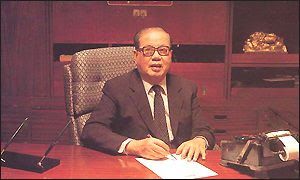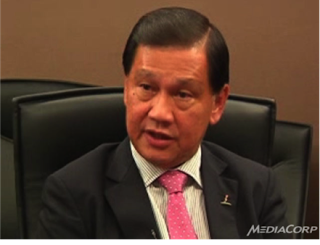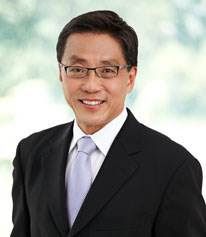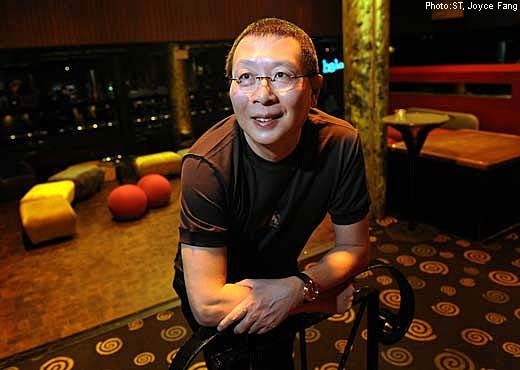Ng Teng Fong - Far East Organization (Wednesday 3 July 2013 / 23:57)
Far East Organization( FEO), together with its Hong Kong-based sister company Sino Group is one of Asia’s largest real estate groups employing over 13,000 staff members worldwide. Far East Organization and Sino Group have a combined annual turnover of US$5.5 billion and total assets valued at over US$45 billion. The group’s real estate assets total some 80 million square feet comprising quality completed and investment properties as well as development land bank. Since its establishment in 1960, Far East Organization has been contributing to the transformation of Singapore’s urban landscape with more than 730 developments including 44,000 or 1 in 6 private homes in Singapore.
Organisation History

FEO completed its first development in 1962, in the form of 72 terrace houses at Jalan Pacheli in Serangoon Gardens that were sold at S$20,000 each. Displaying his trademark boldness and foresight in the market, Ng made his maiden foray into the hotel industry the following year. The Singapura Forum hotel on Orchard Road cost S$5.5 million to construct, and sold in 1982 for S$178 million. FEO continued with residential developments such as Katong Seaview Palace in 1967 and Watten Estate in 1969. That year, FEO made its first venture into a public-listed entity with the construction of the Singapore Hilton hotel
As FEO took on projects of ever-increasing size and costs, it ran into financing problems when a local institution withdrew credit facilities. However, Ng was able to arrange for financing with the Moscow Narodny Bank, and FEO continued to expand. By the end of the 1960s, FEO had diversified into a number of areas. Besides housing and hotel developments, it was also involved in finance, retail and investments

In the early to mid-1990s, FEO reaped the rewards of a strong property market. Their land purchases peaked for the decade at S$2 billion annually in 1994 and 1995. In 1997 alone, FEO had a 41% share of the private homes market in Singapore, selling 2,410 units during the year. The Bayshore condominium, completed that year, reportedly brought in S$600 million in profits for FEO. Its stable of hotels, shopping malls, serviced apartments, offices and commercial spaces also generated a recurring income stream. FEO owned about a quarter of all serviced apartments in Singapore including the flagship Orchard Parksuites, cementing its position as the largest owner-operator of serviced apartments.
By 2002, FEO’s share of the home market had returned to around 25%. At this time, property sales made up around 70% while another 30% came from recurring income such as serviced apartment rents, and commercial and industrial leases. FEO also moved into the healthcare sector by developing Novena Medical Centre opposite the Tan Tock Seng hospital. In early 2003, FEO undertook a major corporate reshuffle by creating four new business groups – Listed companies, Ventures and industrial business, Development and corporate leasing, and Retail and lifestyle concepts.
Up till today, It has developed more than 500 properties in Singapore, especially those in Orchard Road, Singapore's premier shopping and entertainment district. It is the only developer in the world to win seven FIABCI Prix d'Excellence Awards, the highest honour in international real estate.
Brief information of the leader
Ng Teng Fong was a Singaporean real estate tycoon with a major presence in Hong Kong.
Born in Putien in China’s Fujian province, Ng was the eldest of 11 children in their family. At the age of six, he moved to Singapore, where his parents set up a soya sauce factory and grocery shop at Weld Road. With little formal education, Ng worked at his parents’ factory and as a bicycle repairman for a while. As the eldest son, he was expected to carry on the family business, but Ng decided to seek his own fortune in the 1950s, much to the disappointment of his father.
Ng’s first foray into business with a provision shop failed, and he was said to be so poor that he had to give away one of his eight children. However, the business of property development was where his dreams lay and he managed to raise enough capital to establish FEO around 1960, reportedly with assistance from billionaire Eliya Thamby.
Despite his fortune, he had a reputation for leading a frugal lifestyle. Though he controlled at least a quarter of Singapore's housing market, Ng lived in the same house he'd had for 30 years, and used to take his own lunch on the airplanes. He was also a philanthropist and 'allowed' his children to do all kinds of national service.
In 1971, he founded Sino Group. Mr Ng's son Robert is chairman of Sino Land, whose buildings include Central Plaza. As he moved into larger developments, FEO reportedly ran into financial difficulties when a local institution withdrew credit facilities and Ng nearly went bankrupt. However, he managed to arrange new lines of credit with the Moscow Narodny Bank and continue FEO’s business. Hilton Hotel on Orchard Road followed in 1969, Ng’s first venture into a publicly listed company.
Having established various developments at Orchard Road, Ng earned the nickname “King of Orchard Road” for his dominance in Singapore’s prime shopping district.
At the time of Ng’s passing, Sino Land was the fifth-largest developer in Hong Kong by market capitalization. Such was Ng’s standing in Hong Kong that he was the only Singaporean businessman invited to the historic signing of the Sino-British Joint Declaration for the handover of the island to China, between then-British Prime Minister Margaret Thatcher and Chinese Premier Zhao Ziyang in 1984.
After handing day-to-day control of FEO and the Sino Group to his sons Phillip and Robert in the 1990s, Ng continued to oversee his property empire’s strategic direction. He reportedly flew in from Singapore to visit Robert in Hong Kong every week, and was personally present to bid at land auctions. Ng also hit the headlines in 1995 as he won the takeover battle for the Yeo Hiap Seng (YHS) Company, fending off interest from Malaysian tycoon Quek Leng Chan.
In 2001, Ng’s family’s net worth was estimated at around US$3.5 billion but by 2007, after a property boom, this had swelled to US$6.7 billion. This brought him to the top of the Forbes magazine list of Singapore’s richest people. Ng remained at the top of the list until his passing in 2010, his wealth having increased the year before to US$8 billion. Ng suffered a cerebral hemorrhage on 23 January 2010 and, after an unsuccessful operation, died on 2 February 2010 at the age of 82. At his death, he was reportedly the richest person in Singapore
Lucky Ng
A profile of Mr Ng in a 1996 book entitled "Leaders of Singapore," written by Melanie Chew, said his first business in the city-state, a provision shop, failed. But he began to have great success—and got the nickname "Lucky Ng"—in property development. He established his first Singapore housing project in 1962 and later developed many properties along and near Orchard Road, including one named Lucky Plaza.
The book quotes one of Mr Ng's sons as saying the father, who always did calculations with an abacus, "is the eternal optimist, and his belief is that hard work, coupled with good luck, paves the road to success."
Mr Ng, who lived simply and regularly worked 18-hour days, was publicity-shy.
Leadership Styles
Ng possesses the traits of a visionary, charismatic and task & people-oriented leader.
Visionary
Being inspired by Cathay and Shaw, he gave up his stable position in his dad’s soy sauce factory to fulfill his entrepreneur vision by starting off as a property developer. Displaying his trademark boldness and foresight in the market, he make his first entry to Singapore Hilton hotel within the next 7 years. He foresees the potential of potential in Orchard Road hence, decided to transform the Orchard Road that is only a leafy street lined with double-storey shop houses. Next he earned the title of “King of Orchard Road” by unlocking the potential of Orchard Road starting with Far East Shopping Centre, next to Hilton Hotel followed with Lucky Plaza in 1978, Orchard Plaza in 1981, Far East Plaza in 1983 and Claymore Plaza in 1984. In 1987, Far East Organization acquired a majority stake in publicly-listed Ming Court Hotel. The property was subsequently renamed Orchard Parade Hotel in 1991. By then, his company office was moved to Far East Shopping Centre in Orchard. It was from this office that Mr Ng’s propensity for hard work became well-known. Following his success in Singapore, Ng then extended his ambitions and moved his business into the Hong Kong market. He established Sino Group and built the first building (Tsim Sha Tsui Centre) at Tsim Sha Tsui East. For the next few years, Sino Group was the first property developer to transform this area from a desolate waterfront into a vibrant retail and commercial centre. By today, Sino Group is one of Hong Kong’s largest landlords. Apart from the outstanding achievements in Hong Kong, Sino group did not forget its base – Singapore. The Fullerton Heritage is one of Sino’s development in the Singapore’s Central Business District.
In order to bring the hospitality industry to a higher level, FEO’s first serviced residence (Orchard Parksuites) was completed in 1995. This also marked an important shift in the organization’s business strategy. Other than Ocean Parksuites, FEO had other serviced residences including Leonie Condotel, Regency House, Orchard Scotts, Riverside Village Residences and Central Square Village Residences. Up till today, FEO together with Sino owns and operates a portfolio of 12 hotels ranging from leisure business to luxury properties, one example will be Fullerton Hotel Singapore. Beyond the real estate industry, FEO extend its market to the food and beverage industry (Yeo Hiap Seng Limited) which it acquired in 1995.

FEO can be seen continuously improving. FEO is the first developer in Singapore to attain the ISO9002 Certificate for Project Management in 1994, followed by the same certification for Project management and Customer Service in 1998 and 2000 respectively. The strong pioneering spirit of FEO is deeply ingrained in the DNA of the organization. This can be seen from FEO constantly striving to break new grounds in the real estate industry. The Organization continually invests in reinventing lifestyles, creating new desires and aspirations and refreshing the cityscape with new development concepts. This can be seen from having the first executive condominium (Whitewater) in 2002, first inner city-living project (Icon) in 2003 and the first ‘live-work-play’ project by Singapore River (SOHO at Central) in 2004. FEO then made its entry into the healthcare services in Singapore with Novena Medical Center in 2005. It also successfully integrates medical facilities with a retail environment connected to Novena MRT station at basement level following by Novena Specialist Center in 2011.
Charismatic
For someone who believes that “hard work is the key to success”, Ng put in a lot of effort in studying potential sites, inspecting each site many times over as he would be seen visiting a site in the morning, after and late at night, on weekdays and weekends. Chief Executive Officer, Phillip Ng mentioned that his father is one of the most hardworking person he know, he firmly believes that ‘kut lak’ (a hokkien word for hard work or diligent) goes hand in hand with good luck. He believes that with hard work, you will also find your lucky break. In addition, staff and friends reported that could see the lights of Ng’s office burning bright into the early hours of the morning. With this, he influences the employees in FEO(Far East Organization) that “there is no substitute for hard work”. Therefore, his employees were motivated by him and learn after him.
On top of that, FEO focus on action-oriented to people development. Thus launching the FEO Alphabet School, a new learning and development programme that offers travel grants to staff so that they may experience the world’s leading cities through the lens of the Arts, Buildings, Cultures and Dining. As the Organization enters a new era, Ng’s vision of an enduring enterprise is more relevant than ever. Today, the Organization is evolving into a truly entrepreneurial, diverse organisation that embraces creativity and operational autonomy. FEO’s goal is to nurture enterprising leaders at all levels who harness their collective vision to take the business to a new realm and inspire better lives for all.
How did his leadership styles applied to the hospitality industry
In conclusion, Ng’s spirit and his strong values were instilled in his son and employees mind. With this in mind, FEO continuously improve to keep up with their customer preference and also exploring new industry. Other than that, FEO actively support community projects ranging from supporting underprivileged, educational and youth programs. In order to nurture young talents in the hospitality industry, FEO provide scholarship awards in partnership with industry and academic institutions such as the Building and Construction Authority, Singapore Hotel and Tourism Education Centre and Singapore University of Technology and Design.
References:
Labels: Far East Organization, Ng Teng Fong, Sino Group, YEO, Yeo Hiap Seng














